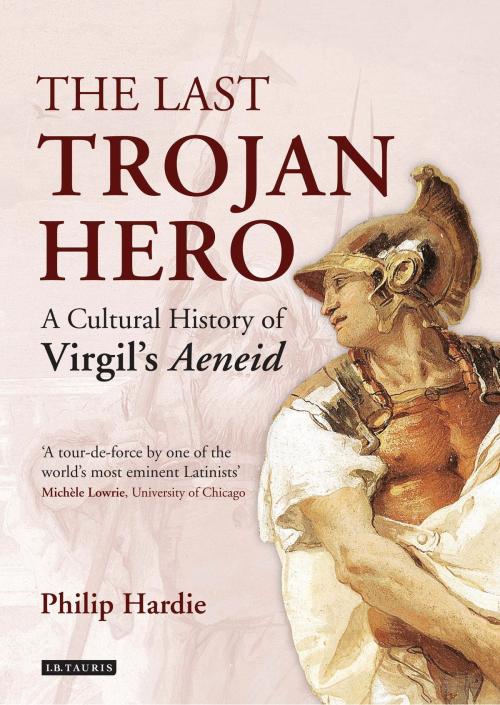The Last Trojan Hero
A Cultural History of Virgil's Aeneid
Nonfiction, Art & Architecture, General Art, Entertainment, Music, Social & Cultural Studies, Social Science| Author: | Philip Hardie | ISBN: | 9780857735065 |
| Publisher: | Bloomsbury Publishing | Publication: | March 30, 2014 |
| Imprint: | I.B. Tauris | Language: | English |
| Author: | Philip Hardie |
| ISBN: | 9780857735065 |
| Publisher: | Bloomsbury Publishing |
| Publication: | March 30, 2014 |
| Imprint: | I.B. Tauris |
| Language: | English |
“I sing of arms and of a man: his fate had made him fugitive: he was the first to journey from the coasts of Troy as far as Italy and the Lavinian shores.” The resonant opening lines of Virgil's Aeneid rank among the most famous and consistently recited verses to have been passed down to later ages by antiquity. And after the Odyssey and the Iliad, Virgil's masterpiece is arguably the greatest classical text in the whole of Western literature. This sinuous and richly characterised epic vitally influenced the poetry of Dante, Petrarch and Milton. The doomed love of Dido and Aeneas inspired Purcell, while for T S Eliot Virgil's poem was 'the classic of all Europe'. The poet's stirring tale of a refugee Trojan prince, 'torn from Libyan waves' to found a new homeland in Italy, has provided much fertile material for writings on colonialism and for discourses of ethnic and national identity. The Aeneid has even been viewed as a template and a source of philosophical justification for British and American imperialism and adventurism. In his major new book Philip Hardie explores the many remarkable afterlives - ancient, medieval and modern - of the Aeneid in literature, music, politics, the visual arts and film.
“I sing of arms and of a man: his fate had made him fugitive: he was the first to journey from the coasts of Troy as far as Italy and the Lavinian shores.” The resonant opening lines of Virgil's Aeneid rank among the most famous and consistently recited verses to have been passed down to later ages by antiquity. And after the Odyssey and the Iliad, Virgil's masterpiece is arguably the greatest classical text in the whole of Western literature. This sinuous and richly characterised epic vitally influenced the poetry of Dante, Petrarch and Milton. The doomed love of Dido and Aeneas inspired Purcell, while for T S Eliot Virgil's poem was 'the classic of all Europe'. The poet's stirring tale of a refugee Trojan prince, 'torn from Libyan waves' to found a new homeland in Italy, has provided much fertile material for writings on colonialism and for discourses of ethnic and national identity. The Aeneid has even been viewed as a template and a source of philosophical justification for British and American imperialism and adventurism. In his major new book Philip Hardie explores the many remarkable afterlives - ancient, medieval and modern - of the Aeneid in literature, music, politics, the visual arts and film.















